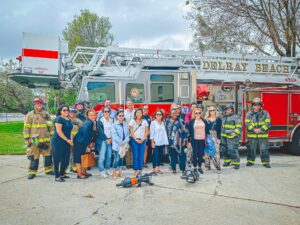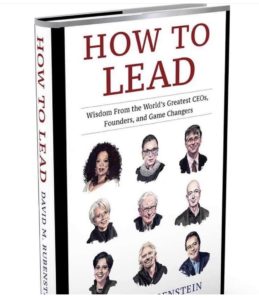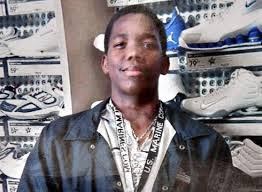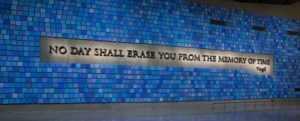
Leadership Delray visits Delray Beach Fire Rescue last week.
Every year, the Greater Delray Beach Chamber of Commerce hosts a “Mayor’s Lunch”as part of its Leadership Delray program.
Last week, newly elected Mayor Tom Carney, former mayor Dave Schmidt and I met with an enthusiastic group of emerging leaders who are enrolled in a comprehensive program designed to introduce them to how the community works.
I like these kind of programs. I think they’re important. We have a fine chamber.
Usually there are more mayors at this event, but scheduling conflicts and the passage of time conspired to constrain attendance this year. But the small group made the most of the opportunity to share bits of local history and meet new friends.
I enjoy the event because I enjoy telling and hearing stories from a past era with newer residents who may not know where we came from.
Sharing these stories is important. Especially in an era where our attention spans have waned and there’s no long a common “water cooler” to connect us.
I also enjoy hearing from current and former mayors.
Tom Carney struck a positive tone, praising staff and promising to convene the community to create a new vision.
It’s a good idea and a good way to start a new term. Ideally, mayors and commissioners serve the community. It’s hard to do that if you don’t survey the community by inviting them to share their ideas and opinions about where they live, work and play.
Mayor Schmidt followed with some solid leadership tips for the group. He talked about the balance that needs to be struck between service and ego and warned that if ego takes over problems follow.
He talked about how leaders should give credit to others but take the blame when things go wrong.
He also noted that criticism should be given respectfully with an eye toward improvement. Too often, we live in a “gotcha” world waiting for a slip-up so we can pounce. That’s not a sustainable strategy, nor does it lead to a productive atmosphere.
Listening to David speak I was reminded about what an extraordinary leader he has been in this community. David has lived here since 1971 and for most of those years he has been a quiet, humble but highly effective leader. He’s 50 years deep in this place and that means something.
Over the years, he has run a law practice, served on city boards, helped to write a few comprehensive plans, led our Sister Cities efforts, chaired the Chamber and Morikami Museum boards, and served with distinction on our city commission.
I shared with the group that I got to sit next to Dave for my first three years on the Commission. It was a great apprenticeship for me because I saw a calm leader who listened to everyone, shared his rationale before votes and encouraged his fellow commissioners to run with their passions.
For Commissioner Pat Archer that meant leading our drug task force which wrestled with how to make sure those in recovery got they helped they needed. Commissioner Alberta McCarthy concentrated on the theme of “Community Unity”, which can sound cliched, but Alberta’s leadership ensured that voices not often heard were invited to the table. Jon Levinson had an interest in housing and that passion led to the creation of the Delray Beach Community Land Trust. David let me run with the Downtown Master plan, which I co-chaired alongside Chuck Ridley.
David noted that the commission he led praised city staff, but also tasked them with an awful lot to do. They rose to the occasion and good things happened in Delray Beach. All of it was done with a lot of community involvement and engagement.
Listening to David speak, I was reminded of his grace under pressure when we decided to move Atlantic High School. David graduated from Atlantic so I’m sure it was an emotional decision to close the old school and move it to a more central location with room for career academies. The decision was controversial, but we ended with a brand new school, the Bexley Park neighborhood and two parks. We had also hoped to get a water park and a middle school of the arts out of the deal, but all in all it worked out.
I also remember how David led after 9/11 when it was discovered that several of the terrorists, including the masterminds were living in our city. We grieved as a community, handled national press and gathered at Old School Square and the Community Center to process our emotions. In a charged time, it’s helpful to have a steady leader. But Mayor Schmidt didn’t disappear after he was termed out.
No, our David is a long term player, committed to making this place better. And he has.
It’s people like David that make places like Delray work.
He didn’t do it for the remuneration; there isn’t any. He did it because he loves this community. Still, there is satisfaction. Lots of satisfaction.
And if we are to be honest there’s pain as well. Heartache too.
But you don’t feel pain or heartache unless you love something.
There are seasons of joy and seasons of pain. Stay around long enough and you feel both.
The Mayor’s Lunch is a chance to share stories with the next generation of leaders. Both David and I are graduates of Leadership Delray. Many former elected officials are graduates as well. Some who go through the program stay around and others pass through. And that’s fine.
But strong communities look to create the next cohort of long-term players, special people who give their time, talent and treasure to their hometowns.
We should treasure these people because they are everything. Let me say that again: they are everything.
Examples abound: Mayor Schmidt is one of many. This blog was created to celebrate these people. They are civic heroes, innovators and visionaries.
That’s what moves the needle. Everything else is negotiable. Everything except the people.
Here’s to the long-term players. Those who move mountains.



 9/11 will always be a somber day for our country.
9/11 will always be a somber day for our country.

